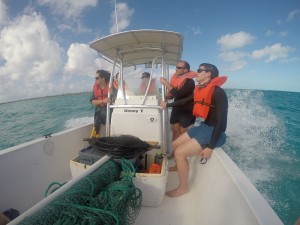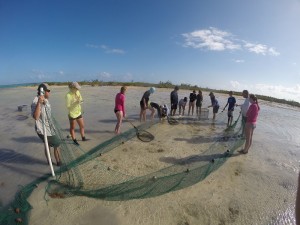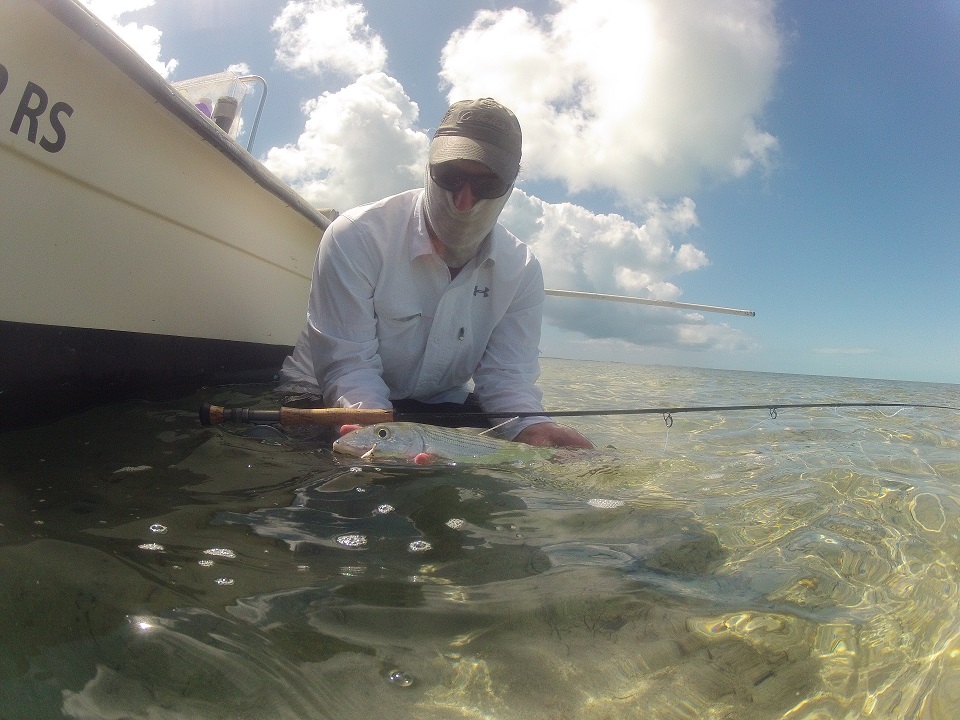
This March, the Flats Ecology and Conservation Team expanded their effort to assess the local bonefish population by implementing an en mass tagging expedition of all the tidal creeks in South Eleuthera. The Flats Team, including, Research Manager Zach Zuckerman, Research Assistant Nick Balfour, Carleton University Graduate Researcher Petra Szekeres and Flats Intern Georgie Burruss, were joined by the CEI Turtle Team, volunteer Gary Cook and Berkshire High School over six days of seining and angling to tag and collect DNA samples from adult bonefish.

After being caught and transferred to a submerged net, the fork length of each fish was recorded along with where it was caught, and the ID number on the tag being implanted. Each of these codes is unique and can later be used to identify each fish once recaptured. The tag is then implanted using a special tagging stick. Lastly, before releasing the fish, a small section of the dorsal or caudal fin is removed for DNA analysis.
These “fin clips,” are collected from each bonefish as part of an ongoing study by Dr. Liz Wallace, a postdoctoral researcher with the Florida Department of Fish and Wildlife. Dr. Wallace uses these samples to compare the genetic relatedness of bonefish populations throughout the Caribbean in order to better understand how their larvae are dispersed.
In collaboration with the Bahamas Initiative, Fisheries Conservation Foundation, Bonefish and Tarpon Trust and the Florida Fish and Wildlife Conservation Commission, the Flats team will continue to monitor the population of adult bonefish every six months. Their goal is to gain a more accurate estimate of the size and origin of local populations by adding several weeks of dedicated sampling in the field.

Over the course of the week, 49 bonefish were caught, tagged and released from six different tidal creeks in Southern Eleuthera. Since its beginning in 2009, the Bahamas Initiative has deployed over 6,569 tags in the Bahamas with 2,149 in Eleuthera alone. While also providing valuable short-term population assessments, continued monitoring could provide insight of long-term migration patterns that can aid in continuing conservation efforts throughout the Caribbean.
Guides and anglers that wish to assist with the tagging program should keep a lookout for tagged fish on the flats. Record its number, location, and date, and contact the BTT at 321-674-7758 or email at: info@bonefishtarpontrust.org.